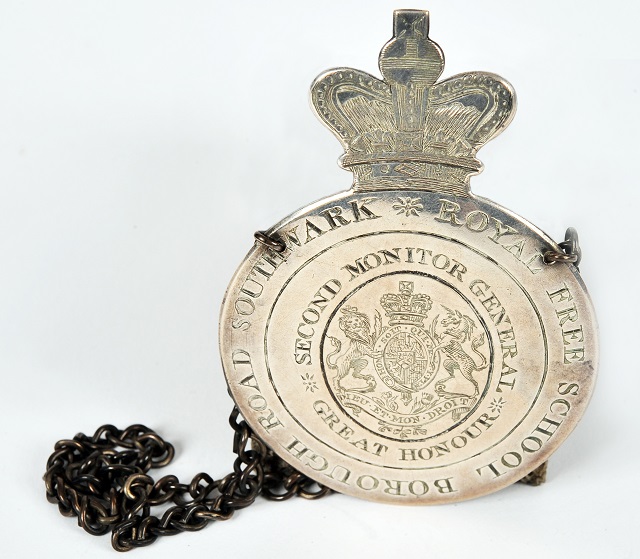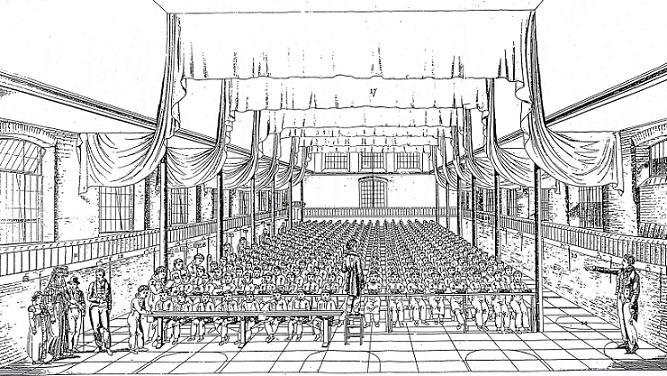Joseph Lancaster was born the 10th child of a working class family in South London in 1778. Despite having only a patchy education of his own, he sparked a revolution in education which brought schooling within reach of millions of children around the world. See our introductory video.
Today we take education for granted, but in Joseph's day things were very different. Here are just a few of the things that Lancaster believed:
- All children have potential which can be released through education
- Children should be rewarded and motivated in school, not beaten
- School should be free
- Children should be provided with food in school
- Teachers should be properly trained, paid and respected
Many people disagreed with him and he faced much opposition, but through the force of his vision and energy, he changed the world and became known as The Poor Child's Friend.'
Lancaster designed a specific way of teaching large numbers of children. It was called the Monitorial System. Monitors were the brightest children from each 'year group', who would be trained by the teacher to deliver simple lessons to their peers. In this way one teacher could school hundreds of children in one room.

Monitors were rewarded with ornate silver badges (Image courtesy of Brunel University London Archives) Find out more at the British and Foreign School Society's Archives.
Lancaster designed a particular type of schoolroom in which his monitorial method could be perfected. Of the dozens of such Schoolrooms built across the world, only one now remains; here at the British Schools Museum.

Lancaster also travelled all across North and South America advocating for schools for the poor. The British and Foreign School Society also championed his ideas and schools were set up on every continent on the planet.
In 2018 the Museum was awarded a 'History Maker' grant through the AIM BiffaAward Scheme to tell the story of Joseph Lancaster and his Educational Revolution. The Schoolroom has been re-interpreted and there has never been a better time to visit the 'Home of the Educational Revolution.'


